As we all know Squash was first played in 1830 in Harrow, however many historians of the sport discovered the origins of the sport began in the 18th century in a London prison.
Since then, Squash has gone to be a part of health clubs with a 75,000 sq. ft complete with other leisure provisions such as swimming pools, bars, and relaxation facilities.
Despite, this growth over the past few years, we have seen Squash courts across the UK, either removed or reduced to make way for gymnasium extensions or new exercise studios.
But when it comes to competitive Squash, there has been no shortage of purpose-built Squash venues for tournaments.
In our research, history shows that there were 5 notable venues in the UK that hosted major Squash tournaments and have left a strong following for the sport:
Wembley, North West London

British Open Championships Wembley (Photo credit: 1983)
Yes, Wembley is a former Squash venue – just like Football, Squash had a home in London’s most famous sporting home.
The Wembley Squash Centre hosted the British Squash Open Championships from 1975 to 1980, and the venue featured 15 courts! Much of the British Open was later held at the Wembley Conference Centre (1980, 1984-1994).
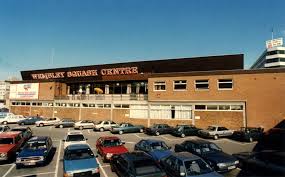
Wembley Squash Centre (Credit: Unknown)
Many fans of the sport can rejoice that Squash is still thriving in North West London with The Wembley & Sudbury Tennis and Squash Club and in neighbouring Brondesbury Cricket Tennis & Squash Club – both venues offer excellent Squash facilities aligned with community engagement through social activities.
Assembly Rooms, Derby
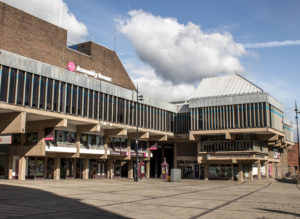
Assembly Rooms Derby (Photo credit: Unknown)
This venue is renowned for entertainment and conference venue in which residents and even visitors can enjoy the latest contemporary plays and even attend exhibitions – however back in 1983; the venue hosted British Open Squash Championships.
Both men’s and women’s finals featured epic matches of the greatest players of that decade – Jahangir Khan v Gamal Awad, and Vicki Cardwell v Lisa Opie.
In terms of a Squash legacy, in Derby, there is a considerable number of Squash clubs operated by commercial and public organisations – the most notable being the Duffield Squash & Racket Ball Club.
Echo Arena, Liverpool
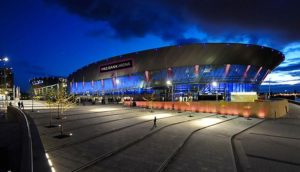
Echo Arena (Credit: Visit Liverpool)
Liverpool is a city that has many claims to fame – the Beatles and Liverpool FC (to name a few) but the Echo Arena once hosted the 2008 Men and Women’s British Open Squash Championships.
What is memorable about this venue, was Nicol David’s legacy on the spot by becoming the first 3-time British Open Squash Champion from Malaysia – thus ranking the country higher with more titles individually than a group of players from the same country.
Within Liverpool, there are many venues with Squash courts, including Capitol Squash Club, which is located in St. Helens’s premier squash club that is very community driven.
Churchill Theatre, Bromley
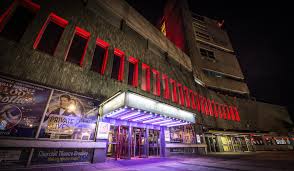
Churchill Theatre Bromley (Photo credit: Unknown)
Located in South East London and borders of Kent, this entertainment venue hosted the British Open Squash from 1981-1982.
Back in the time, when Squash was popular, many of the local Squash faithful of Bromley could contain their joy of going to see a major tournament on their doorstep.
Not very far from the theatre, if you walk or drive, you will find three decent squash clubs within 3 miles of this former squash venue; this shows that Squash is truly popular in South Kent.
Brunel Old Station, Bristol
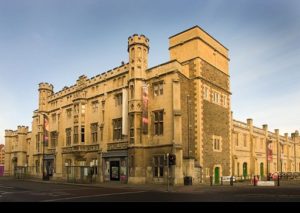
Brunel Old Station
In the UK from 1985 to 1988, this train station venue hosted the 1981 British National Squash Championships the national squash championships for players from the United Kingdom & Ireland.
Oddly enough, Grand Central Terminal hosts the Tournament Of Champions – this proves one thing squash you can play in any venue.
Squash revival beyond Covid 19
Following the pandemic there is news that gyms equipped with squash courts are planning to reopen soon, despite this there will be a major change in the number of people in the gymnasiums at one time because of social distancing rules.
Now, this could be an opportunity for some operators to bring back one or two squash courts to bring the numbers up in their venue.
It may sound unethical, but owners of gym & squash clubs will need to think of ways of keeping their members happy when they cannot go to the gym because there is not enough exercise equipment; hence there could be a spike in Squash participation, thus club owners could promote the sport as great workout alternative to the gym.
